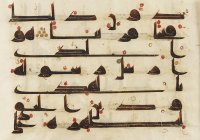Upcoming Colloquia in the UK
Thanks to Nicolai Sinai and Mehdi Azaiez
Islamic Studies Colloquium
CLAIMING TRADITION: MODERN REREADINGS OF THE CLASSICAL ISLAMIC HERITAGE
Organisers: Elisabeth Kendall, Ahmad Khan, Christopher Melchert, Nicolai Sinai
Venue: Pembroke College, Oxford. OX1 1DW
Date: 27-28 September 2013
Both the resurgence of Islamist politics and the political, social, and intellectual upheaval accompanying the Arab Spring challenge us to reconsider the interplay between the pre-modern Islamic tradition and modern proponents of continuity, reform, and change in the Muslim world. The colloquium therefore invites scholars with an in-depth knowledge of the classical Islamicate heritage to explore modern texts that stake out some sort of claim to pre-modern traditions in disciplines as diverse as Islamic law, hadith, Qur’anic exegesis, politics, and literature. The colloquium will encourage specialists to embark on a hermeneutically sophisticated exercise that avoids some of the extremes to which an examination of how the classical heritage functions in the modern Islamic world has often been subjected. The colloquium aims to move beyond works that contain the tacit assumption that modern Muslims are subconsciously steered by the Islamic tradition, without exerting any sort of agency or control over it, and studies that suggest that modern Muslim thinkers arbitrarily distort elements of the tradition to which they lay claim. Instead, we invite scholars to consider modern re-appropriations of pre-modern concepts, texts, persons, and events, and thereby to transcend an increasing bifurcation between classical and contemporary Islamic studies.
Participants:
Carole Hillenbrand (University of Edinburgh), Robert Gleave (University of Exeter), Christopher Melchert (University of Oxford), Ahmad Khan (University of Oxford), Nicolai Sinai (University of Oxford), Islam Dayeh (Freie Universitat Berlin), Karen Bauer (Institute of Ismaili Studies), Elisabeth Kendall (University of Oxford), Marilyn Booth (University of Edinburgh), Jon Hoover (University of Nottingham), Christian Lange (Utrecht University)
Acknowledgement:
This colloquium has been made possible thanks to the generosity of Brian Wilson, a long-standing benefactor of Arabic studies at Pembroke.
Registration:
Attendance is free, but attendees must register by 16 September at ahmad.khan@pmb.ox.ac.uk
For more information, please visit here.
Fragmentation and Compilation : The Making of Religious Texts in Islam A Comparative Perspective II (30 septembre – 1er octobre)
Workshop
30 September–1 October 2013
The Institute of Ismaili Studies, London
2nd Floor, Room 2.3
Convenor : Asma Hilali
Abstracts
Fragmentation and Variation in the First Islamic Graffiti (1st–2nd century AH)
Frédéric Imbert, Aix-Marseille University, France
The latest research in the field of Islamic graffiti in the first two centuries AH in the Middle East is uncovering new information about Muslim society at the dawn of Islam. Most of this information concerns the Islamic faith, the place of the Qur’an and the figure of the Prophet Muhammad, but the oldest graffiti also allow us to reflect on the status of writing during the same period. Thousands of Arabic Kufic graffiti recently discovered in Saudi Arabia and in the wider Middle East reflect an extreme fragmentation due to the quantity of inscriptions scattered all over the area. These Arabic graffiti, which were not subjected to any kind of censorship, are the expression of variation and repetition at the same time : variation of the Qur’anic text and of the attitude of people towards the new religion and the Prophet, and repetition of the religious prayers and invocations. The picture of early Islam emanating from the first Islamic graffiti is one of fragmentation.
Repetitions and Variations, and the Problem of ‘Qur’anic Variants’
Asma Hilali, The Institute of Ismaili Studies, London, UK
The field of Qur’anic Studies has been greatly influenced by the medieval reception of the Qur’an text manifested in the exegetical literature and by the theories related to the ‘Qur’anic variants’. The concept of ‘Qur’anic variants’ is deeply rooted in the history of the canonisation of the Qur’an and in the various assumptions made about scribal errors and falsification. My paper will provide a critique of the conceptual tools used in Qur’anic Studies in the last two decades and will propose a new perspective in the study of the textual features interpreted by the medieval and modern scholars as ‘Qur’anic variants’. The new perspective takes the fragmented aspect of the text to be inseparable from the history of its transmission.
Fragmentation, Compilation and Discourse : A Comparison of Three Arbaʿūn Collections on Jihād and Martyrdom Compiled in the Late Mamluk Period
Stephen Burge, The Institute of Ismaili Studies, London, UK
This paper examines the ways in which hadith scholars went about compiling hadith collections by undertaking a comparative analysis of three similar works written in the same period. The three collections are all arbaʿūn collections – short collections of around forty hadith – which focus on the themes of jihād and martyrdom. The three studied are Suyuti’s Abwāb al-suʿadāʾ fī asbāb al-shuhadāʾ (‘The Gates of the Lucky in the Occasions of Martyrdom’) and his Arbaʿūn ḥadīthan fī faḍl al-jihād (‘Forty Hadith on the Merits of Jihad’) and al-Biqāʿī’s Dhayl al-istishhād bi-āyāt al-jihād (‘The Appendix to Martyrdom in the Verses on Jihād’). I will argue that by closely analysing the material included and excluded from a hadith collection, as well as the ways in which the hadith have been arranged, it is possible to gain a deeper understanding of particular nuances within a text in which a compiler does not give his views openly to his reader. This paper will argue that the ‘hadith literature’ contains a vast, almost infinite, body of texts and the job of the hadith compiler is to fragment this wider body of texts, to reconstitute them, and then to arrange them in order to provide a specific discourse on a subject. This process can be seen in the different ways the three works under consideration in this paper respond to the subjects of jihād and martyrdom.
The Qur’an’s Fragmentation and Realignment of Gospel and Talmud
Holger Zellentin, The University of Nottingham, UK
The unique ways in which the Qur’an ‘heard’ select stories from the Aramaic Gospel tradition has been considered by generations of scholars. Yet, only the most rudimentary consensus has been established about the nature of the texts with which the Qur’an’s audience was familiar, let alone the ways in which the Qur’an used these texts. The Qur’an’s utilisation of Talmudic material has received even less attention, and a consensus is even more remote. The present paper seeks to advance, one small step, our understanding of the deployment of both corpora in the Qur’an by considering them jointly. More than occasionally, the Qur’an fragments and realigns demonstrable elements of the (likely oral) Gospel and the Talmudic traditions together in order to solidify its claim of being a correction to the shortcomings of both.
Unity and Fragmentation in the Standard Text of the Qur’an : The Prophet as First Addressee and Dialogic Argumentation. Mehdi Azaiez, CNRS/IREMAM, FRANCE
As defined in discourse analysis, first addressee (or interlocutor) is the person involved in a conversation or dialogue. The figure of the Qur’an’s first addressee is a textual phenomenon linked to the structure of the text and its argumentative dimension. In my contribution, I will define the notion of the first addressee in the Qur’an, its linguistic forms and functions within the entire Qur’an. I will explore the following questions : The variety of the notions of ‘the first addressee’ ; the double aspect of fragmentation/unity of text after its collection and the role of the first addressee in the argumentative shape of the text. My contribution aims to show (i) how the dialogic relation between a Qur’anic enunciator and its first addressee reveals one of the main aspects of Qur’anic argumentation ; (ii) how the Qur’an legitimates the status of its first addressee as a prophet.
Programme
Day 1 : Monday, 30 September 2013
12:00 Arrival of speakers at hotel and lunch
14:00 Welcome
Asma Hilali, The Institute of Ismaili Studies, London
14:00–16:00 Session 1 : Qur’anic Studies : From a Fragmentary Approach to an Approach about Fragmentation
Speakers : Stephen Burge, The Institute of Ismaili Studies, London
Asma Hilali, The Institute of Ismaili Studies, London
Holger Zellentine, The University of Nottingham
Discussant : Prof. Aziz al-Azmeh
This session will examine the state of the field of Qur’anic Studies. It will cover the following topics :
(i) Qur’anic manuscripts : A tool or an aim ?
(ii) Intertextuality : Methodological remarks
(iii) Fragmentation/Compilation perspectives on the Qur’an text in the context of the history of its transmission.
16:00 Break
16:20–17:50 Session 2 : Variation and Repetition in Qur’anic Texts
Chair : Holger Zellentin
Fragmentation and Variation in the First Islamic Graffiti (1st–2nd century AH)
Frédéric Imbert, Aix-Marseille University
Repetitions and Variations, and the Problem of ‘Qur’anic Variants’
Asma Hilali, The Institute of Ismaili Studies
19:00 : Speakers’ Dinner
Day 2 : Tuesday, 1st October 2013
9:00–11:00 Session 3 : Comparative Perspectives
Chair : Mehdi Azaiez, University of Notre Dame, Indiana
Fragmentation, Compilation and Discourse : A Comparison of Three Arba’un Collections on Jihad and Martyrdom Compiled in the Late Mamluk Period
Stephen Burge, The Institute of Ismaili Studies
The Qur’an’s Fragmentation and Realignment of Gospel and Talmud
Holger Zellentine, The University of Nottingham
Unity and Fragmentation in the Standard Text of the Qur’an : The Prophet as First Addressee and the Dialogic Argumentation
Mehdi Azaiez, LabexResmed, Paris
11:00 General Discussion
12:00 Speakers’ Lunch
For more information, please visit here.
© International Qur’anic Studies Association, 2013. All rights reserved.


